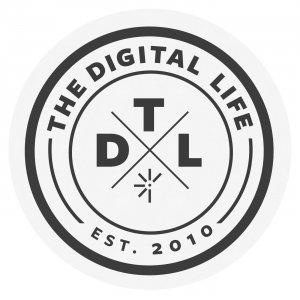The Digital Life

Open Humans
Jon: Welcome to Episode 124 of The Digital Life, a show about our adventures in the world of design and technology. I'm your host, Jon Follett, and with me today is Madeleine Price Ball, who is the co-founder and principle investigator of the Public Data Sharing Study. Madeleine, welcome to the show.
Madeleine: Hi. It's great to be here.
Jon: For our podcast topic this week, we're going to chat with Madeleine about Open Humans, which is an online platform that enables people to, not only, connect and participate with research studies, but also receive data back from the scientists conducting these studies. Madeleine, let's jump right into it. How did Open Humans ... How did that project get started?
Madeleine: Open Humans is kind of a spin-off, or an outgrowth, of the work that me and Jason Bobe with done with the Personal Genome Project, which was founded by George Church, and also with the GET conferences. GET stands from Genome, Environments and Traits. We draw from these experiences where we've been working with an amazing group of participants in these research studies that are really interested in giving their data to research.
In the Personal Genome Project, the study is founded on the idea that genome data is personal and identifiable, but that we can still recruit people who are interested in sharing that data, plus health data, knowing the dangers of identifiability. There's still some data astronauts out there who are interested in sharing their data, and it turns out that there's a lot of people, there's over 4500 people now that have signed on to the PGP.
At the GET conferences, we've had a bridge that's formed by bringing in researchers that want to work with these people, and want to study them. Open Humans is about bringing these people and researchers together, and making the data that the research studies generate portable between them, so that people can get their data back from a research study and share it with other researchers, or choose to share it publicly.
Jon: How did this project genesis happen? I know you went through a number of grant applications and then there was some huge momentum that came from two rather large awards. Could you tell us a little bit about that, and how that happened?
Madeleine: It really has its roots in working together with Involution Studios before those awards, kind of brainstorming what is the Personal Genome Project supposed to be, how should it grow, what should it look like? One of the things we thought it should be is, sort of, this place that's like a data hub, where people can bring data in from research studies and be sharing it publicly as a resource, and with researchers, and that name, Open Humans, was generated and we had a lot of ideas about that.
Jason has had some ongoing relationships with people at private foundations that are interested in this stuff. In particular, the Robert Wood Johnson Foundation. We talked to them and drew up a draft, and a grant proposal, that solicited, sort of, this is what we want to do, are you interesting in funding it?
Jon: How does it work for the Open Humans members, and on the other side of the coin, for the researchers? If I were to become a Open Humans member, what's the process that I go through for signing up, and then getting my data into the system?
Madeleine: Right, so right now members can just go onto Open Humans and create an account. One question would be, why might you want to create an account? You can become someone who is receiving and donating their data to research in an ongoing fashion. We have a series of research studies right now, but we're going to keep adding more research studies, and we're going to keep adding me ability to import data from other sources, like Fitbits and phone apps that track your run, and genetic data from various genetic data providers, so we keep growing that.
You want to make an account, you go to openhumans.org,






 Visit Podcast Website
Visit Podcast Website RSS Podcast Feed
RSS Podcast Feed Subscribe
Subscribe
 Add to MyCast
Add to MyCast